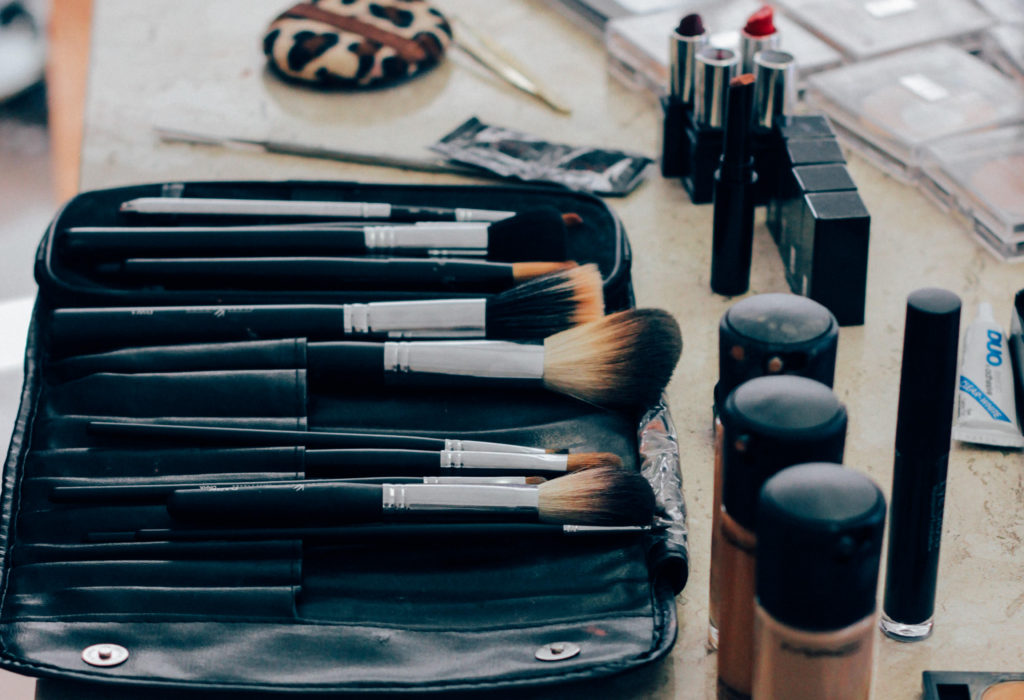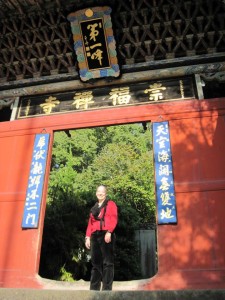The year is 2007 and our bags are packed with “layering tanks” from American Eagle, flat irons to steam our hair into long, flat planks, and short denim skirts. The manufacturers have carefully ripped the skirts to look like the storied clothing item of a ranch hand or someone who has army crawled through a field of barbed wire.
Well, not ALL of our bags share these contents. Mine didn’t.
It’s senior ditch day and I have packed the few items I imagined would be necessary for the sort of girls weekend where we’d eat ice cream out of the carton in between fistfuls of Cheetos: comfortable sweatpants, a swimsuit, and a small bag of hodge-podged toiletries and makeup that I don’t intend on using. 
When the other girls begin to rip open their overnight bags at the bed and breakfast, I realize my mistake. This is not that type of weekend at all. There are seven of us on the trip. Four of the girls are my closest friends at school while the other two are more acquaintances, friends of the others who tend to pull them in a direction where I fit in less.
Even though the temperature is well below swimming weather, the girls insist on shimmying into their bathing suits so we can take pictures on the dock. While my friends wore various iterations of the bikini, I brought what can only be described as a swimsuit designed for moms with ample bosoms. The Lands’ End two-piece is a tasteful navy and features underwire support for D-cup breasts and a control-top skirt designed to tuck in postpartum bellies. Even with these precautions, I nervously tug at the hemline, not having had the appropriate amount of time to tend to my forest of upper leg hair.
I take cues from my friends during the self-timed photos, imitating their pouty lips as we huddle under towels for warmth. I follow just a slight step behind, in the same way I’d slurred along with the lyrics to songs I didn’t know on the car ride up.
After our photoshoot, we decide to go out to dinner. I throw on a pair of jeans and declare myself ready, sweeping back my frizzy hair whispies into a messy bun. As I plop down on the bed to wait for the other girls, the rituals of the powder room begin.
Not only have my friends brought nice outfits for going out, they brought several nice outfits, each with corresponding layers of tanks and cardigans, items branded with size zero and XS labels, currency to be traded for the tiny clothes brought by the other tiny girls.
From endless compartments in their luggage and small floral zippered bags, they produce little black vials and canisters and line them up across the bathroom counter. Some girls use stubby makeup brushes to apply “bronzer,” something I’ve never even heard of. Not only do they know how to expertly apply it to the bridges of their noses and across their cheekbones, but they happily chirp back and forth about the merits of brand A and some horror stories about brand B, which they had switched to after trying brand C.
 These girls speak in a diplomatic language I don’t know, bartering trade agreements: help with the hair straightener in exchange for help applying “smoky eyes,” or a slinky sundress traded for a ruffled skirt that rests confidently at the upper thigh. One girl forgot her serum or pomade or spray and needs to borrow from someone else who happily supplies the product she can’t live without.
These girls speak in a diplomatic language I don’t know, bartering trade agreements: help with the hair straightener in exchange for help applying “smoky eyes,” or a slinky sundress traded for a ruffled skirt that rests confidently at the upper thigh. One girl forgot her serum or pomade or spray and needs to borrow from someone else who happily supplies the product she can’t live without.
Alone in my bathroom at home, I’d cheer myself on for allotting enough time for a flick of a mascara wand across my lashes, or on an extravagant day, a swath of crusty bronze eyeshadow extracted from a cracked Cover Girl palette held together with a rubber band. I didn’t own a straightener and only occasionally pulled out our dusty hair dryer from a basket of abandoned hot tools, predominantly unearthed for formal events and Halloween.
Looking back at pictures of myself, I notice a layer of oily skin sheen and a characteristic zit by the corner of my mouth. My noise was spotted with wide open pores and many sprays of hair trailed around the outline of my already-too-thick eyebrows.
Even just looking into the face of high school Meredith makes my armpits sweat as I remember the way clothes chafed and tugged in all the wrong ways. My closet was full of clearance tops from Old Navy.com that I liked in theory, but never looked the same after a wash or two. Everything was either stretched out or rolled up my body like a window shade. The poor quality fabrics occasionally caused me to break out into hives and made me sweat everywhere they brushed against my skin.
Sitting in the bed and breakfast, it strikes me that no one sees fit to convert me, to make me their project. I long to be transformed by a fairy godmother with an eyebrow pencil and experience with contouring, but instead I sit silently, trying find small things to do to extend my preparation time. Clearly, it’s supposed to take longer.
My mind doesn’t often go towards beauty and grooming. It never became a part of my routine, and so I don’t often think about hair and makeup; I’ve long been accustomed to my bare, natural face, which most days makes me grateful.
I now have a basic grasp of the concept of cognitive load, that we each can give our concentration to only so many things, that I give mind space to things that others don’t have on their radar or would find trivial. The majority of the time, I’m not too upset with my cycle of forgetting about my beauty routine only to panic at the sight of my brows in the fluorescent light of a gas station bathroom.
But put me in a powder room or a hotel room or at someone’s parents’ house getting ready for a wedding and I start to feel the gap between my primping and that of the other women with me.
Now, I know to get up off the bed and humbly admit to my dear friends, I have no idea what I’m doing!
*Photos provided by Unsplash.com

